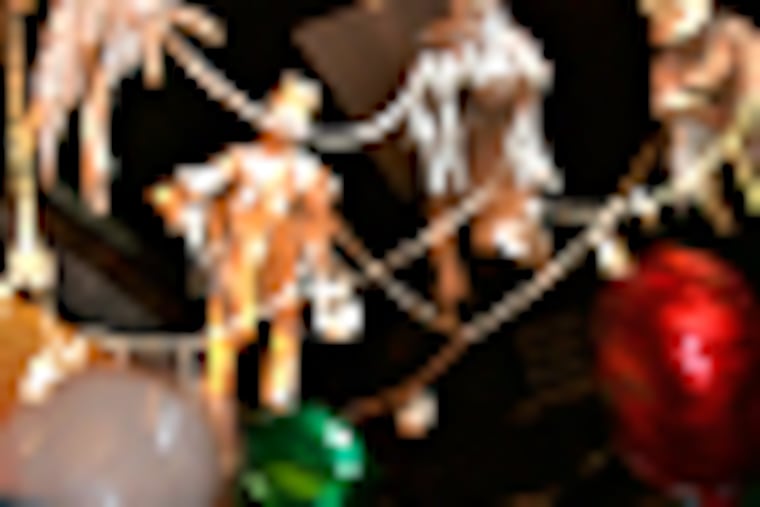Christmas spirit
By Scott B. Pruden Philadelphia recently lost one of Santa's least conspicuous helpers. Ray Daub, the man whose vision became the Dickens Christmas Village display at the Macy's in Center City, died the day after Thanksgiving, the same day that his crowning achievement opened to the public for the 2012 holiday season.

By Scott B. Pruden
Philadelphia recently lost one of Santa's least conspicuous helpers. Ray Daub, the man whose vision became the Dickens Christmas Village display at the Macy's in Center City, died the day after Thanksgiving, the same day that his crowning achievement opened to the public for the 2012 holiday season.
A bearded, curmudgeonly, chain-smoking craftsman, Ray inspired wonder in the masses but stayed shrouded in the shadows. It's unlikely that you've seen his name in print or his face on TV since 2005. That was the 20th anniversary of his three-quarter-scale, walk-through presentation of Charles Dickens' A Christmas Carol, and its last year at its original location in the Strawbridge & Clothier department store at Eighth and Market Streets (now home to The Inquirer).
Along with my best friend and then-high school classmate Chris Martin, I was fortunate enough to work for Ray in the mid-'80s as he envisioned, designed, built, and installed the display. The work at Ray's shop in Newport, Del., was hard and not always safe. It wasn't unusual for us to find ourselves working on 15-foot-high scaffolding in an icy warehouse, our only warmth and illumination coming from a set of movie lights.
Ray was a tough boss and a brutal critic. His assessments of our work were sharp-edged and frequently profane. On paydays, he regularly treated Chris and me to short, improvised performances suggesting we were holding him up at gunpoint or picking his pockets.
Given that we were working on a Dickens display, Chris later noted the irony that our boss and working conditions were themselves a bit Dickensian.
In recent years, unfortunately, Ray's life had become more Dickensian than anyone anticipated. Like one of the author's long-suffering protagonists, he endured, in quick succession, divorce, deaths of loved ones, a decline in business, and alcoholism. He ended up living on the streets. In the months before his death at 61, however, after three years in a men's shelter in Wilmington, he had been able to move out and live on his own again.
On learning of his passing, I began reflecting on what Ray gave to Philadelphia, and to me.
For the city, he created an enduring addition to a long Christmas legacy. Every holiday season, thousands still line up to see his Dickens Village, just as they did upon its grand opening more than 25 years ago.
Ray gave a lot to those of us who worked for him, too. Chris, now a high school art teacher, gained a mentor and a lifetime of inspiration. As for me, every day I saw Ray spending long hours bent over a sculpture of Ebenezer Scrooge, his eyes narrowed and a cigarette drooping from his bearded lips, I was learning that art was hard work, not to be attempted by the lazy or uncommitted - and that creating something of value was always worth the effort.
Despite the misfortune that eventually befell Ray, he also showed me that art can pay. For a young writer, the lesson that artists don't have to starve was valuable indeed.
In his last years, Ray found a spirituality that had eluded him for most of his life. To think of my sardonic former boss following a godly path was odd but, in retrospect, appropriate. After achieving success and then falling so far, he had found some redemption, not unlike Ebenezer Scrooge at the end of Dickens' tale.
Though Ray could seem like an unredeemed Scrooge to his young Bob Cratchits, he always had a soft center. To have created such a wonderful and genuine embodiment of Christmas required as much.
This season, I'll be sure to revisit his creation knowing that so much of his soul runs through its figures, illustrations, props, and set pieces. And even though he was a man more inclined to smirk than smile, I'll hope he's somehow aware of the happiness he brought so many, and the gift he gave to us, the helpers in his magical workshop.